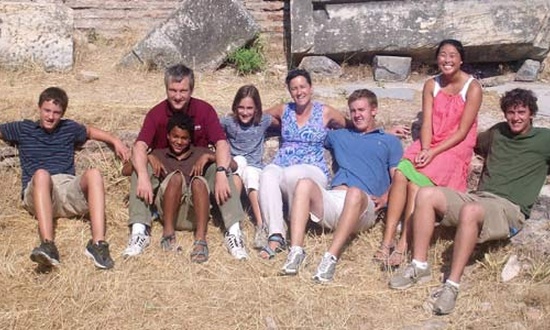From beginning to end, Scripture repeatedly emphasizes God’s ownership of everything:
- “To the Lord your God belong the heavens, even the highest heavens, the earth and everything in it” (Deuteronomy 10:14).
- “The land is mine and you are but aliens and my tenants” (Leviticus 25:23).
- “Yours, O Lord, is the greatness and the power and the glory and the majesty and the splendor, for everything in heaven and earth is yours. Yours, O Lord, is the kingdom; you are exalted as head over all. Wealth and honor come from you; you are the ruler of all things” (1 Chronicles 29:11-12).
- “Who has a claim against me that I must pay? Everything under heaven belongs to me” (Job 41:11).
- “The earth is the Lord’s and everything in it, the world, and all who live in it; for he founded it upon the seas and established it upon the waters” (Psalm 24:1-2).
- “For every animal of the forest is mine, and the cattle on a thousand hills. I know every bird in the mountains, and the creatures of the field are mine. If I were hungry I would not tell you, for the world is mine, and all that is in it” (Psalm 50:10-12).
- “‘The silver is mine and the gold is mine,’ declares the Lord Almighty” (Haggai 2:8).
Search and you won’t find a single verse of Scripture that suggests that God has surrendered his ownership to us. God didn’t die and leave the earth—or anything in it—to me, you, or anyone else. And if we should think, Well, at least I own myself, God says, “You are not your own; you were bought at a price” (1 Corinthians 6:19-20).
When I’ve taught from 1 Corinthians 6 in a college class, I have asked someone in the front row to lend me his pencil for a moment. When he handed me the pencil, I immediately took it, broke it in half, threw it on the ground and crushed it under my foot. The reaction of the students was shock and disbelief. What right did I have to break someone else’s pencil? But then I explained that it’s really my pencil, which I planted with that person before the session. Suddenly everything changed. If it was my pencil, but only if it was mine, then I had the right to do with it as I pleased—which is precisely Paul’s point in his letter to the Corinthians. The believers in Corinth were doing what they pleased. And why not? They thought their lives were their own. But Paul says, “No, it’s not your life. You own nothing, not even yourself. When you came to Christ you surrendered the title to your life. You belong to God, not to yourself. He is the only one who has the right to do what he wants with your life—your body, your sexual behavior, money, possessions, everything.”
God doesn’t just own the universe. He owns you and me. We are twice his—first by creation, second by redemption. Not only does God own everything, but he determines how much of his wealth he will entrust to us:
“Remember the Lord your God, for it is he who gives you the ability to produce wealth” (Deuteronomy 8:18).
“The Lord makes poor and makes rich; He brings low and lifts up” (1 Samuel 2:7, NKJV).
“Wealth and honor come from you; you are the ruler of all things” (1 Chronicles 29:12).
Stewardship is living in the light of these overriding truths. It’s living with the awareness that we are managers, not owners; that we are caretakers of God’s assets, which he has entrusted to us for this brief season here on earth. How we handle money and possessions demonstrates who we really believe is their true owner—God or us.
Photo by Brazil Topno on Unsplash





